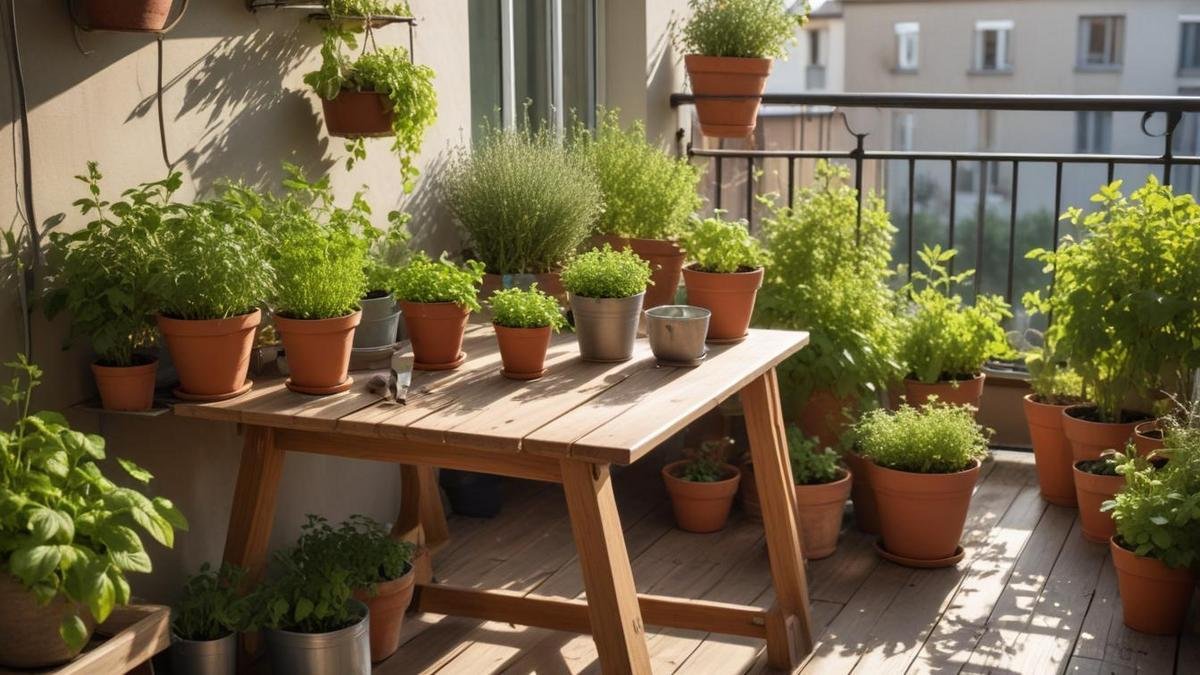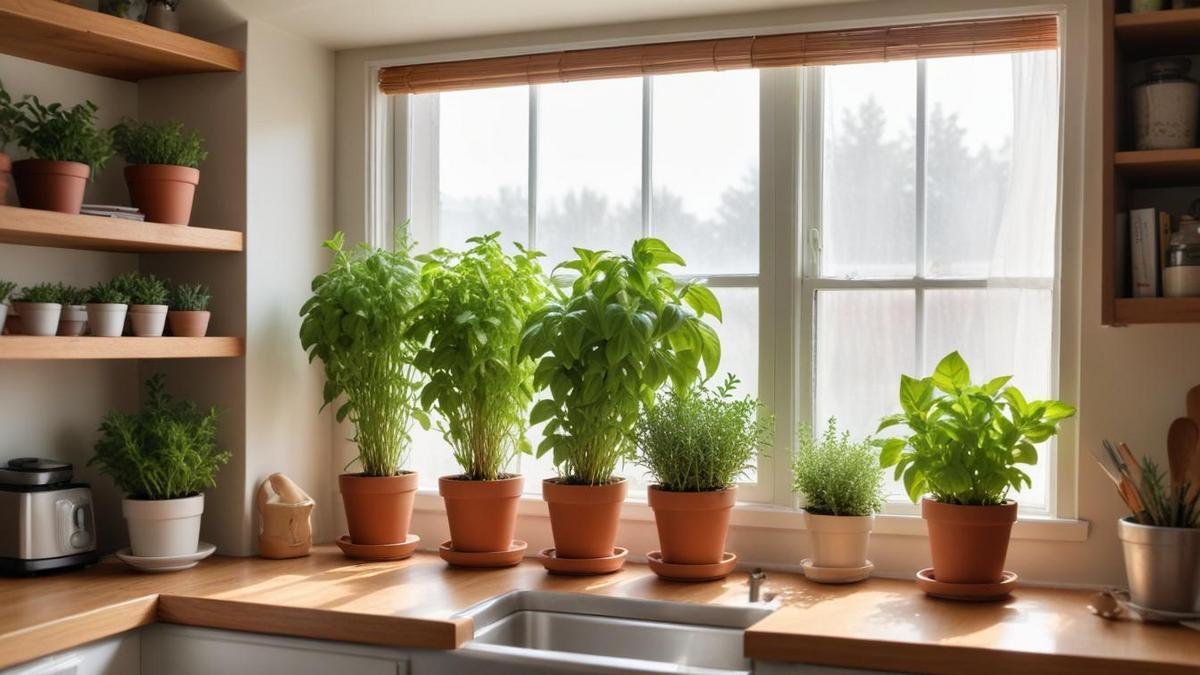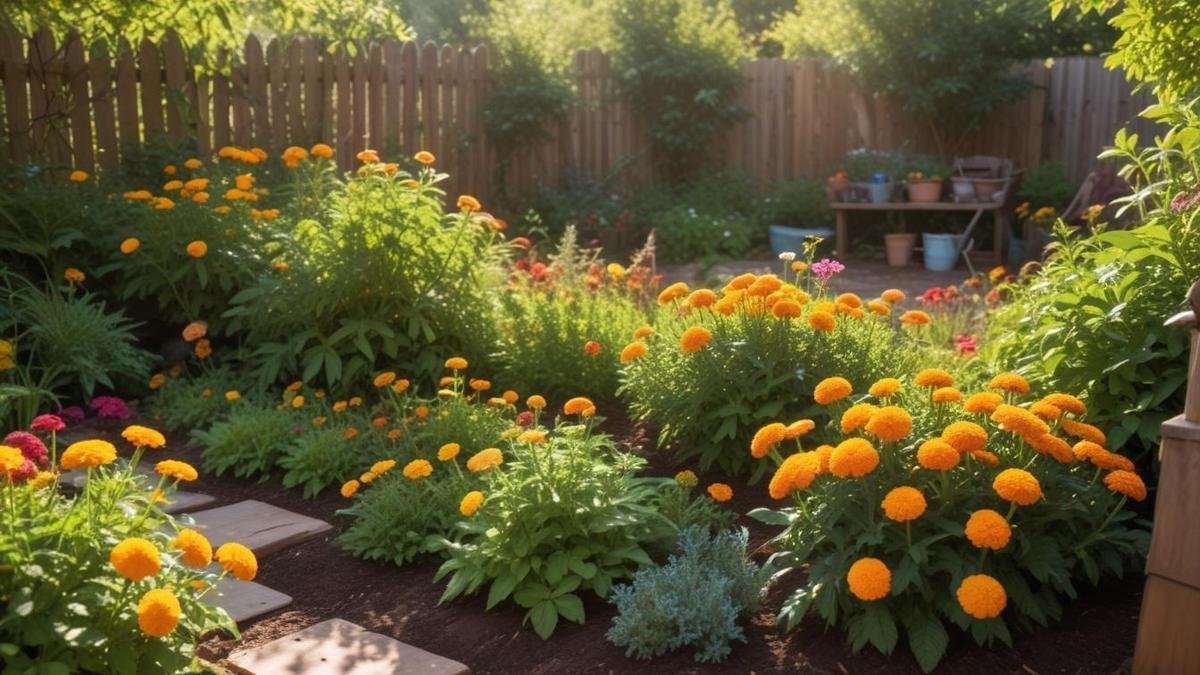
Are you ready to dive into organic gardening tips for beginners in small spaces? Whether you have a tiny balcony, a small backyard, or just a sunny windowsill, you can grow your own plants and herbs! This article is packed with fun ideas and easy techniques for making the most out of your limited space. From choosing the right containers to keeping pests away, you’ll find everything you need to start your green journey today. Let’s get growing!
Important Points to Remember
- Start with herbs and salad greens for easy wins.
- Use pots or vertical gardens to save space.
- Choose plants that grow well together.
- Water your plants regularly but don’t overdo it.
- Keep an eye out for pests and treat them early.

Essential Organic Gardening Tips for Beginners in Small Spaces
Choosing the Right Containers for Your Plants
When you’re starting your organic garden in a small space, picking the right containers is key. Think about the size and the type of plants you want to grow. Here are some tips to help you choose:
- Size Matters: Make sure your containers are big enough for your plants. For example, herbs can thrive in smaller pots, while tomatoes need larger ones.
- Material Choice: Clay pots are great for heat, while plastic pots are lighter and easier to move. Both have their pros and cons.
- Color Impact: Darker pots can heat up more in the sun, which is good for some plants but can stress others.
Here’s a quick table to help you out:
| Container Type | Best For | Pros | Cons |
|———————|———————————–|—————————|—————————|
| Clay | Heat-loving plants | Breathable, good drainage | Heavy, can crack |
| Plastic | Lightweight options | Easy to move, affordable | Less breathable |
| Metal | Modern look | Durable | Can heat up quickly |
| Fabric | Air circulation | Great drainage | Needs regular watering |
Best Soil Mixes for Container Gardening
The right soil mix can make or break your container garden. You want a mix that holds moisture but also drains well. Here’s what to consider:
- Potting Mix: A good potting mix is often your best bet. It’s designed to support plants in containers.
- Add Some Perlite: This helps with drainage. Just mix it in with your potting soil.
- Organic Matter: Adding compost gives your plants nutrients. It’s like a boost of energy for them!
How to Ensure Good Drainage in Containers
Good drainage is crucial for happy plants. Here are some straightforward tips to keep your containers from becoming waterlogged:
- Drainage Holes: Always choose pots with holes at the bottom. This allows excess water to escape.
- Layering: Place small stones or gravel at the bottom of the pot before adding soil. This helps water flow out.
- Avoid Overwatering: Check the soil moisture before watering. Stick your finger in the soil; if it feels wet, skip the watering!
Urban Gardening Ideas for Small Spaces
Making the Most of Your Balcony
Got a balcony? You’re in luck! This little outdoor space can turn into a green oasis. Start by selecting containers that fit your style. Use pots, window boxes, or even hanging baskets. Here’s a quick list of plants that thrive in small areas:
- Herbs (like basil and mint)
- Lettuce
- Cherry tomatoes
- Flowers (like petunias)
To keep things tidy, consider a balcony railing planter. This saves space while adding charm. Also, remember to check how much sunlight your balcony gets. It’ll help you choose the right plants.
Creative Use of Vertical Space for Gardening
When space is tight, think upwards! Vertical gardening is a smart way to maximize your area. You can use wall-mounted planters, trellises, or even a pallet garden. Here’s a simple table to show you some great vertical options:
| Vertical Option | Best Plants | Benefits |
|————————|————————–|———————————–|
| Wall-mounted Planters | Herbs, Succulents | Space-saving, decorative |
| Trellises | Peas, Beans | Supports climbing plants |
| Pallet Garden | Strawberries, Flowers | Unique look, easy to create |
Adding vertical elements not only saves ground space but also creates an eye-catching display. Plus, it can help with air circulation for your plants.
Tips for Hanging Plants in Urban Areas
Hanging plants can really jazz up your space! Here are some tips to get you started:
- Choose lightweight pots: This makes it easier to hang them.
- Use sturdy hooks: Make sure they can hold the weight of your plants.
- Pick the right plants: Ferns and trailing vines are great options.
Consider using macramé hangers for a trendy touch. They add style while keeping your plants safe. Remember to water them carefully; hanging plants can dry out faster.

Indoor Herb Gardening for Beginners
Best Herbs to Grow Indoors
If you’re just starting out with indoor herb gardening, you’ll want to pick the right plants. Some easy-to-grow herbs that thrive indoors include:
- Basil: Great for adding flavor to dishes.
- Mint: Perfect for teas and desserts.
- Chives: Adds a mild onion flavor.
- Parsley: A versatile herb for cooking.
- Cilantro: Essential for many cuisines.
These herbs are not only simple to care for, but they also pack a punch in flavor. Plus, they can add a splash of green to your kitchen!
Light Requirements for Indoor Herbs
Light is crucial for your indoor herbs. Most herbs need 6 to 8 hours of sunlight each day. Here’s a quick guide on how much light different herbs need:
| Herb | Light Requirement |
|---|---|
| Basil | Full sun (6-8 hours) |
| Mint | Partial shade (4-6 hours) |
| Chives | Full sun (6 hours) |
| Parsley | Partial shade (4-6 hours) |
| Cilantro | Full sun (6 hours) |
If you don’t have enough natural light, consider using grow lights. They can help your herbs grow strong and healthy.
How to Water Your Indoor Herbs Properly
Watering your herbs can be tricky, but it’s essential. Here are some simple tips to keep your plants happy:
- Check the soil: Stick your finger about an inch into the soil. If it feels dry, it’s time to water.
- Water deeply: When you do water, make sure to soak the soil. This encourages roots to grow deeper.
- Avoid overwatering: Too much water can lead to root rot. Make sure your pots have drainage holes.
By keeping an eye on your watering routine, you can help your herbs thrive.
Composting in Small Spaces
Easy Composting Methods for Beginners
Composting doesn’t have to be a big hassle, even if you’re short on space! Here are some simple methods you can try:
- Bokashi Composting: This method uses a special mix of microbes to ferment your food scraps. Just add your waste to a container, sprinkle with Bokashi bran, and seal it up. It’s great for small spaces!
- Worm Composting (Vermicomposting): Red wigglers are your best buddies here! They munch on kitchen scraps and turn them into nutrient-rich compost. You can keep a worm bin under your sink or in a closet.
- Tumbler Composting: If you have a little outdoor space, a compost tumbler is perfect. You can easily mix your compost by spinning the bin. It speeds up the process and keeps things neat!
Benefits of Composting for Small Space Gardens
Why should you bother with composting? Here are some fantastic benefits:
- Nutrient-Rich Soil: Compost adds essential nutrients back into your soil. Healthy plants are happy plants!
- Waste Reduction: Instead of tossing scraps, you’re turning them into something useful. Talk about recycling!
- Cost-Effective: You save money on fertilizers. Plus, you make use of what you already have.
- Less Trash: Composting reduces the amount of waste you send to the landfill. It’s a win-win!
| Benefit | Description |
|---|---|
| Nutrient-Rich Soil | Boosts plant health and growth |
| Waste Reduction | Turns scraps into valuable compost |
| Cost-Effective | Saves money on store-bought fertilizers |
| Less Trash | Reduces landfill waste |
How to Maintain Your Compost Bin
Keeping your compost bin in tip-top shape is easy! Here’s how:
- Turn Your Compost: If you’re using a tumbler, spin it once a week. If it’s a worm bin, just check on your worms regularly.
- Add Greens and Browns: Mix kitchen scraps (greens) with dried leaves or cardboard (browns). This balance helps speed up decomposition.
- Keep it Moist: Your compost should feel like a wrung-out sponge. If it’s too dry, add some water; if too wet, add more browns.
- Monitor Temperature: If it’s too cold, decomposition slows down. A compost thermometer can help you keep an eye on things!

Organic Pest Control Techniques for Small Gardens
Natural Remedies for Common Pests
Dealing with pests in your garden can feel like a battle. But don’t worry! You can use natural remedies that are easy and effective. Here are some options:
| Pest Type | Natural Remedy |
|---|---|
| Aphids | Spray with a mixture of water and dish soap. |
| Spider Mites | Use neem oil or a mix of water and garlic. |
| Slugs and Snails | Sprinkle crushed eggshells or coffee grounds around plants. |
| Whiteflies | Introduce sticky traps or spray with a mix of water and soap. |
These remedies are safe and won’t harm your plants. Plus, they keep your garden healthy and thriving!
Attracting Beneficial Insects to Your Garden
Want to turn your garden into a pest-fighting paradise? Attract beneficial insects! These little helpers can keep pests at bay. Here’s how you can invite them:
- Plant diverse flowers like marigolds, daisies, and sunflowers. They love these blooms!
- Create a water source like a small dish with stones and water. This will help them stay hydrated.
- Avoid using pesticides. Chemicals can harm these friendly insects.
When you create a welcoming environment, ladybugs and lacewings will come knocking at your door!
Creating a Balanced Ecosystem in Your Garden
A balanced ecosystem is key to a thriving garden. Think of it as a team effort. Here are some steps to help you achieve this:
- Plant a variety of crops. Mixing plants can confuse pests and attract good insects.
- Practice crop rotation. Changing plant locations each season keeps pests guessing.
- Add compost. This enriches the soil and promotes healthy plants.
By following these steps, you’ll create a self-sustaining garden that takes care of itself!
Beginner Gardening Tools for Small Space Gardening
Must-Have Tools for Container Gardening
Starting your container garden can be exciting! Here’s a list of tools you should have:
| Tool | Purpose |
|---|---|
| Hand Trowel | Perfect for digging and planting small plants. |
| Pruning Shears | Great for trimming and shaping plants. |
| Watering Can | Helps you water your plants without spills. |
| Garden Gloves | Protect your hands while working. |
| Soil Scoop | Makes transferring soil easy and mess-free. |
| Plant Labels | Keep track of what you’ve planted. |
These tools will help you get started on the right foot. You’ll find them handy as you grow your garden in small spaces!
How to Use Basic Tools Effectively
Using your tools the right way makes all the difference. Here are some tips:
- Hand Trowel: Use it to dig holes for your plants. Make sure to loosen the soil first for easier planting.
- Pruning Shears: Always cut at a 45-degree angle to help the plant heal faster.
- Watering Can: Water your plants at the base to avoid wetting the leaves, which can lead to disease.
- Garden Gloves: Wear them to protect your hands from dirt and thorns.
- Soil Scoop: Use it to fill pots without spilling soil everywhere.
- Plant Labels: Write down the name and date of planting to keep track of your plants.
Using these tools correctly will save you time and effort!
Tips for Organizing Your Gardening Tools
Keeping your tools organized helps you work more efficiently. Here are some simple tips:
- Get a Tool Bag: A sturdy bag keeps everything in one place.
- Use Hooks: Hang tools on a wall to save space and keep them visible.
- Label Your Containers: If you store tools in boxes, label them for easy access.
- Clean After Use: Wipe down tools after gardening to keep them in good shape.
By keeping things tidy, you’ll spend less time searching for tools and more time enjoying your garden!
Frequently asked questions
What are the best plants for small space organic gardening?
Choose compact plants like herbs, salad greens, and cherry tomatoes. They thrive in limited space and are easy to manage.
How do I start an organic garden in a small apartment?
Use pots or containers on your balcony or windowsill. Make sure you have good soil and enough sunlight.
Can I use my kitchen scraps for organic gardening?
Absolutely! Kitchen scraps like vegetable peels and coffee grounds can enrich your soil. Just compost them first!
How often should I water my small space garden?
Water your plants when the top inch of soil feels dry. This keeps them healthy without overwatering.
What are some organic pest control tips for beginners?
Try using neem oil or insecticidal soap. You can also attract beneficial bugs like ladybugs to help with pests.
